I Don’t Know Why I Am On The MATCH List. What Do I Do?
March 12, 2025
How to Manage Too Many Chargebacks
May 18, 2025Here’s Why You’re Probably On The MATCH List
Have you just found out your payment processing account has been canceled or denied, or you can no longer accept credit card payments? Chances are, you have been placed on the Mastercard MATCH List. This is an industry blacklist that warns other banks and processors about high-risk businesses. There are thirteen reasons that you could be on the MATCH List, but there are three very common ones. Keep reading to learn more about the most common reasons you may be on the MATCH List, how to fix it, and how to get off MATCH early.
You Have Too Many Chargebacks
When running any business, you will come across unhappy customers, issues, mistakes, and more. Sometimes, these can lead to chargebacks.
When a customer disputes a debit or credit card transaction, the card issuer must determine whether to provide that cardholder with a refund for the transaction amount, also known as a chargeback.
Due to the costs and time involved with the process of chargebacks, they are a growing concern for both merchants and issuers, especially as the number of chargebacks soars with the explosion of e-commerce. In fact, the cost of chargebacks is expected to reach more than $1 billion by 2023, up from $690 million in 2020, according to an Ethoca-commissioned Aite Group study.
Chargebacks are inevitable, whether it is a customer disputing the charge by mistake, fraud, or service issues on the business’s part. Mastercard allows a 1% chargeback rate due to this inevitability. However, once this rate starts climbing to above 1%, you can find yourself on the MATCH List.
Solution: Avoid Chargeback and Bring Your Rate Down
If you have too many chargebacks, there are a few things you can do to start bringing your rate down and get off the MATCH List. These include:
- Make sure your business name is clear. When a customer sees a charge they do not recognize, they will open a chargeback. Make sure the business name that shows up on transactions is clear, not abbreviated, and even contains your phone number. You’d rather them call you to find out what the charge was than call their credit card.
- Provide excellent customer service. Make sure you are able to quickly answer customer emails, calls, and questions so that chargebacks do not open due to lack of communication.
- Have a clear return and refund policy. One of the most common reasons customers open a chargeback is because they have not received their refund in a timely manner. Make sure expectations and policies are made very clear on your website so that you can protect yourself from chargebacks.
- Keep plenty of documentation. Protect yourself with a paper trail so that you can prove your chargeback rate is within range. Otherwise, it will be very difficult to get off the MATCH List.
You’ve Violated the PCI Standard Noncompliance
The PCI in PCI Standard stands for Payment Card Industry, and if you violate their standards, you can very quickly find yourself on the MATCH List. Luckily, this is one of the easier ways to get off the MATCH List.
In addition to getting placed on the MATCH List, you may also get hit with a hefty fine, starting at $25,000, if you do not comply and fix the issues.
Wondering how to get PCI Standard compliant? Their website offers a host of information, but we can help you navigate this, as well.
Some PCI Standards are intended for use by organizations involved in payments, such as merchants, service providers, and financial institutions, to use within their environments. These standards support implementing secure practices, technologies, and processes within the organization.
Solution: Ensure You’re Compliant
All you have to do is prove that you are now compliant. However, banks and payment processors have no obligation to allow you to do this, which is where we come in. By getting legal help from experts, we can work on your behalf directly with these companies to make sure we prove your innocence, show that you’re compliant, clear your name, and get you off the MATCH List as quickly as possible.
Your Business Has Had Fraud or Identity Theft Issues
If your business has fallen victim to identity theft, fraud, or data breach issues, you will likely find yourself on the MATCH List. Yes, this means that you can get on the MATCH List through no fault of your own as a victim of a crime.
The reason that this violation exists is to protect customers and to ensure that businesses have high standards of security. If you have not fallen victim to identity theft or fraud, now is a good time to evaluate your data security measures and ensure they are up to snuff. If you have, this is highly likely why you are on the MATCH List, and data security should be at the top of your priority list in order to get off MATCH.
Solution: Beef Up Your Security
As mentioned, in order to get off the MATCH List for this violation, you have to be able to prove that you have made changes to your data security to make sure nothing like this is likely to happen again. Hackers get more and more sophisticated over time, but there are plenty of things you can do to ensure the safety and security of you, your customers, and all the data you collect.
What Are Other Reasons To Get on MATCH List?
Aside from excessive chargebacks, PCI Standard Noncompliance, and identity theft issues, you can get on the list for ten other reasons. The full list of violations includes:
The list of reasons why you may be on the MATCH List includes:
- Account Data Compromise
- Common Point of Purchase (CPP)
- Laundering
- Excessive Chargebacks
- Excessive Fraud
- Mastercard Questionable Merchant Audit Program
- Bankruptcy/Liquidation/Insolvency
- Violation of Standards
- Merchant Collusion
- PCI Data Security Standard Noncompliance
- Illegal Transactions
- Identity Theft
Still not sure why you may be on the MATCH List? Banks and payment processors have no obligation to tell you they’ve added you, to tell you why, or to help get you off of it. Give us a call so we can work on your behalf.
What Should I Do Now?
If you are on the MATCH List or highly suspect you are, it is important to work quickly. This is because the penalty for being placed on the MATCH List is that you are on it for five years before you age off. This means that, for five years, you cannot process credit card payments as a low-risk processor.
Becoming a high-risk processor has many drawbacks. First, you will pay hefty fines that cut into your bottom line. Next, you will be locked into lengthy contracts that are difficult to get out of, even if you eventually get downgraded back to low-risk. Finally, there is no guarantee that you will be able to accept card payments again. Many processors do not want to work with high-risk merchants on the MATCH List, which is why the blacklist exists.
Early MATCH List Removal with TFM Law
The good news about the MATCH List is that, with the right help, you can get off and get back to business as usual. If you have found yourself on the Match List, you have options. Don’t wait the five years and lose your livelihood.
The Law Offices of Theodore Monroe focuses on litigation and counseling in the areas of payments, credit card processing, e-commerce, direct response marketing, and Federal Trade Commission enforcement.
Last year, the firm removed 100% of the people who came to us from the MATCH list.
Theodore F. Monroe, Founder of TFM Law, has successfully:
- Represented merchants recovering funds from processors
- Structured processing relationships to comply with Card Brand requirements
- Drafted and negotiated contracts involving payment facilitators and ISOs
- Represented continuity merchants in compliance and litigation issues
- Fought for numerous companies in suits brought by the Federal Trade Commission and obtained excellent results for firms in the digital products, loan modification, government grant, and nutraceuticals industries
Before opening his firm, Mr. Monroe practiced law with Crosby, Heafey, Roach & May (now Reed Smith LLP) and Lewis, D’Amato, Brisbois & Bisgaard (now Lewis, Brisbois, Bisgaard & Smith), where he defended numerous accounting and law firms in professional liability actions, and insurance carriers in bad faith actions.
Before becoming a lawyer, Mr. Monroe worked as a forensic accountant at Coopers & Lybrand, which provided him with a unique background in forensic accounting and financial analysis among litigators in Los Angeles. Mr. Monroe studied at Duke University Law School, achieved a BS with Honors in Accounting from the University of Kentucky, and is a member of the California State Bar and the Kentucky State Bar.
For more information or to get started, visit us at HowToGetOffMATCH.com!




